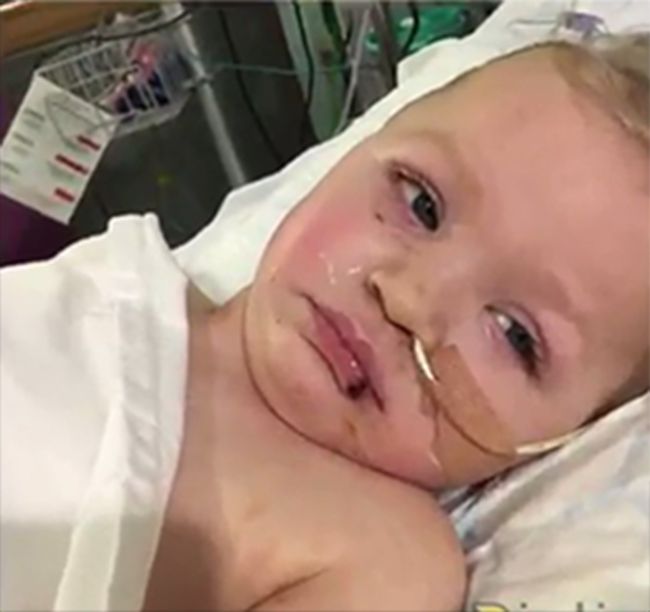Messages have been pouring in for England World Cup rugby hero Matt Dawson after he and his wife revealed that their toddler son has beaten meningitis. The sportsman shared a series of upsetting photos once his little boy Sami beat the disease after "two weeks of hell."
The father-of two and his wife Carolin Hauskeller deliberated over whether to post the heartbreaking images of their son as he fought the disease from his bed in Great Ormond Street Hospital, London.
The couple decided to share photos of their son to raise awareness
After warning his 252,000 Twitter followers of the distressing content, the Question of Sport captain uploaded the images, revealing his "lucky" son had beaten the condition and praising the "amazing people" who helped treat him.
The photos show little Sami wired up to machines in a hospital bed, his body covered in bright red marks, as well as images of the boy on the road to recovery.
Sami was fighting the disease for two weeks
One touching shows the brave boy sharing a hug with his older brother Alex. The doting father captioned the pictures with the message: "The two weeks of hell we've just had cos of meningitis. Sami lucky due to amazing people @GreattOrmondSt #vaccinate NOW."
The 43-year-old first tweeted the images by writing: "Been umming and ahhhing about whether I should write the next post but my wife and I have agreed it's important. The pic may be upsetting!!"
Older brother Alex gives Sami a hug
The dad's warning comes after the parents of two-year-old Faye Burdett, who died from meningitis, shared horrific photos of her fighting for her life to raise awareness of the illness.
Faye's parent, Jenny and Neil, are calling for the Meningitis B vaccine to be given to all children, not just babies, to prevent the most deadly form of meningitis claiming more lives.
"All children are at risk from this terrible infection, yet the Government plans to only vaccinate two to five-month-olds," Jenny explained. "There needs to be a roll-out programme to vaccinate all children, at least up to age 11. Meningococcal infections can be very serious, causing meningitis, septicaemia and death."












